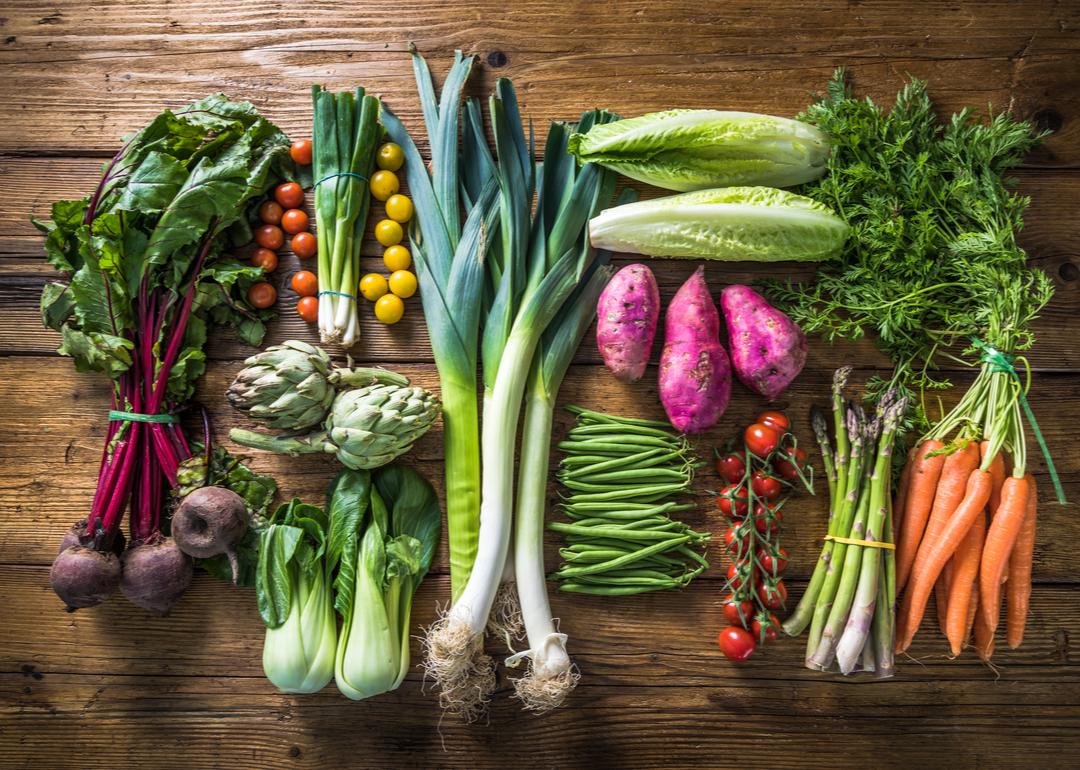
This story originally appeared on Thistle and was produced and distributed in partnership with Stacker Studio.
Health benefits of 20 common vegetables
The UN General Assembly named 2021 the International Year of Fruits and Vegetables (IYFV). The designation brings with it a chance to raise awareness around the world of the essential role fruits and vegetables play in food security and nutrition.
Plant-based meal delivery service Thistle compiled a list of 20 common vegetables with serious nutritional benefits using reliable journal studies and news articles. From the magnesium-rich sunchoke, which can help you fall asleep faster and stay asleep longer, to the beta carotene rich carrot, which can stave off eyesight decline, the options are endless for using vegetables to improve your overall health and well-being.
It’s no secret that eating your vegetables is a key component of good nutrition and health. From vitamins A, C, and E to magnesium and phosphorous, veggies are a major source of essential nutrients, minerals, and vitamins.
The vegetable kingdom extends far beyond lettuce and tomatoes to many flavorful and nutrient-dense options. All of these can be prepared and incorporated into a diet that makes staying healthy delicious and fun rather than a tasteless obligation. Many chefs around the world are taking note—from Los Angeles-based chef Matthew Kenney, whose plant-based empire is wildly popular in the health-conscious city, to London chef Yotam Ottolenghi, who uses everything from cauliflower to artichokes as the stars of his meals.
Keep reading to discover many of the ways different vegetables can lead to a healthier lifestyle while delighting your tastebuds.
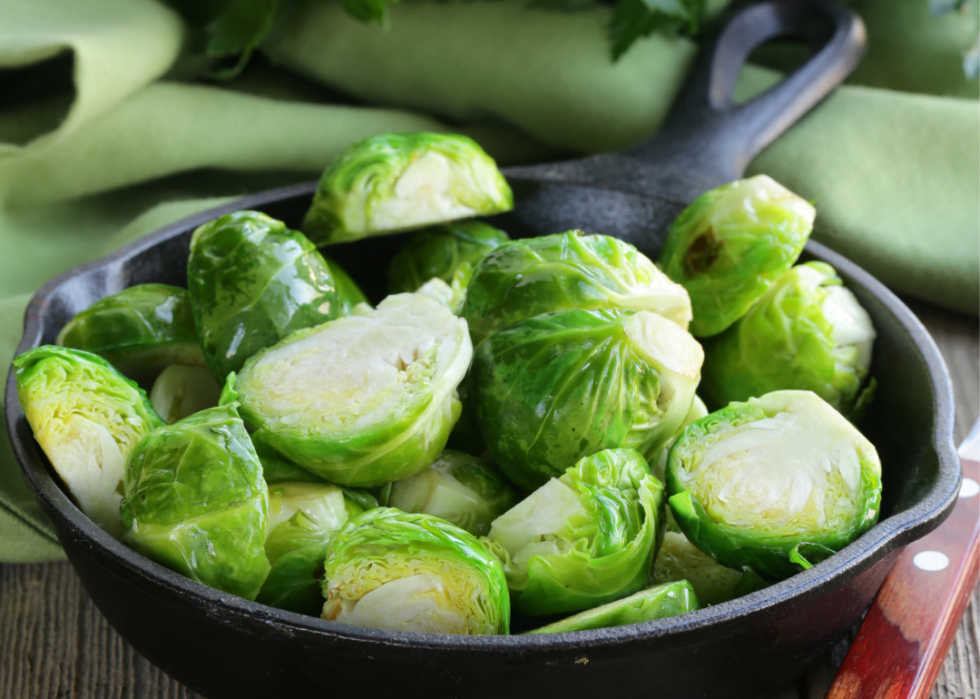
Brussels sprouts
Brussels sprouts have become a widely popular side dish at restaurants and in homes. Delicious roasted in the oven or sauteed, this cruciferous vegetable carries a range of health benefits. These include their high fiber content, folate, and an array of vitamins. To fully enjoy brussels sprouts, consider roasting them to a crisp and topping them with a high-protein cheese or simply spicing them with iodine-rich sea salt.
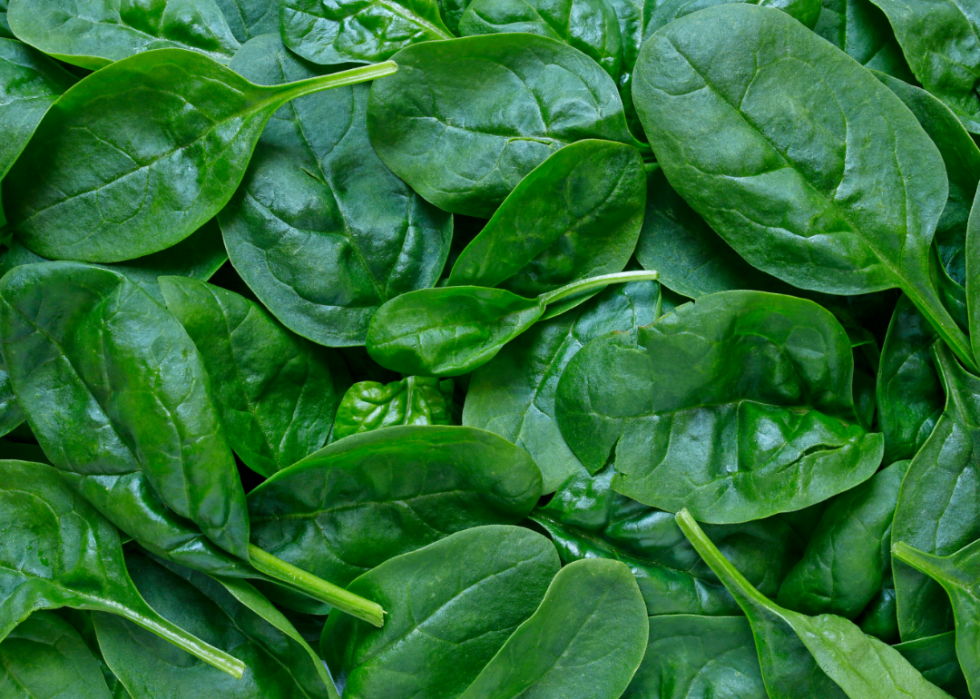
Spinach
Vegetarians and vegans, in particular, are wise to load up on spinach. The leafy green is full of iron, which is also commonly found in meat and animal products. Spinach can also help with high blood pressure. Studies have found that even over a short period of time, increasing the consumption of spinach can lead to lowered blood pressure and improved cardiovascular health. Get spinach in everything from a salad to a sauteed side with a protein for dinner.
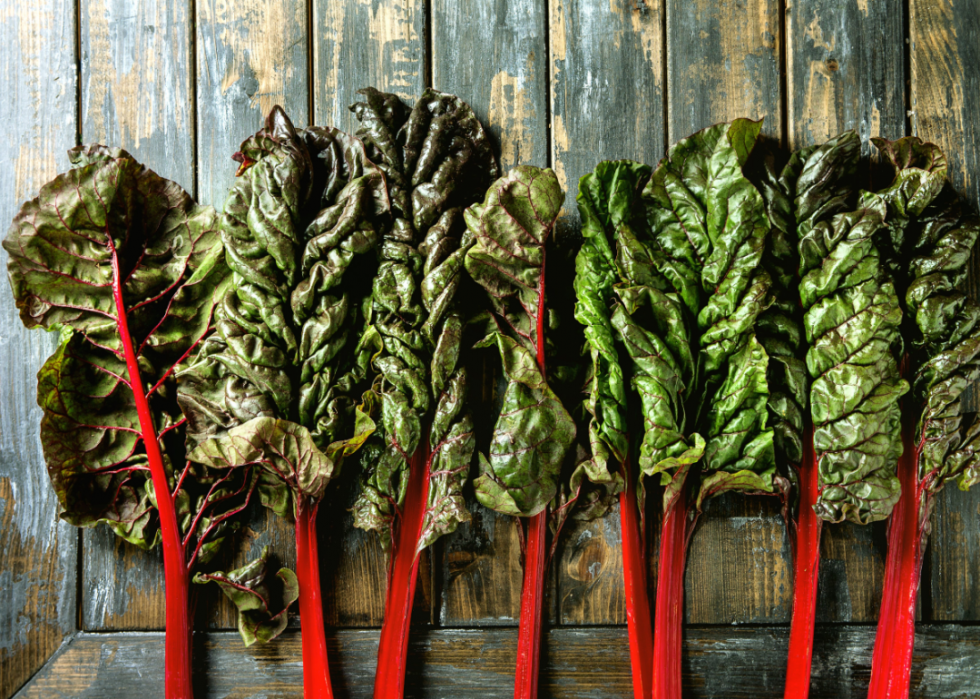
Chard
Chard may be a relative of beets, but it’s grown for its leaves rather than its roots. It is an excellent source of potassium, which helps reduce blood pressure and water retention, and works well for regulating fluid balance and nerve signals. In some studies, subjects were found to have a 21% lower risk of stroke with every 1.64 grams of potassium they ate. Chard leaves can be chopped for salads, added to omelets, tossed in a smoothie, cooked in a stir fry or soup, and whole leaves can even be used as a wrap, taco-style, or added to sandwiches.
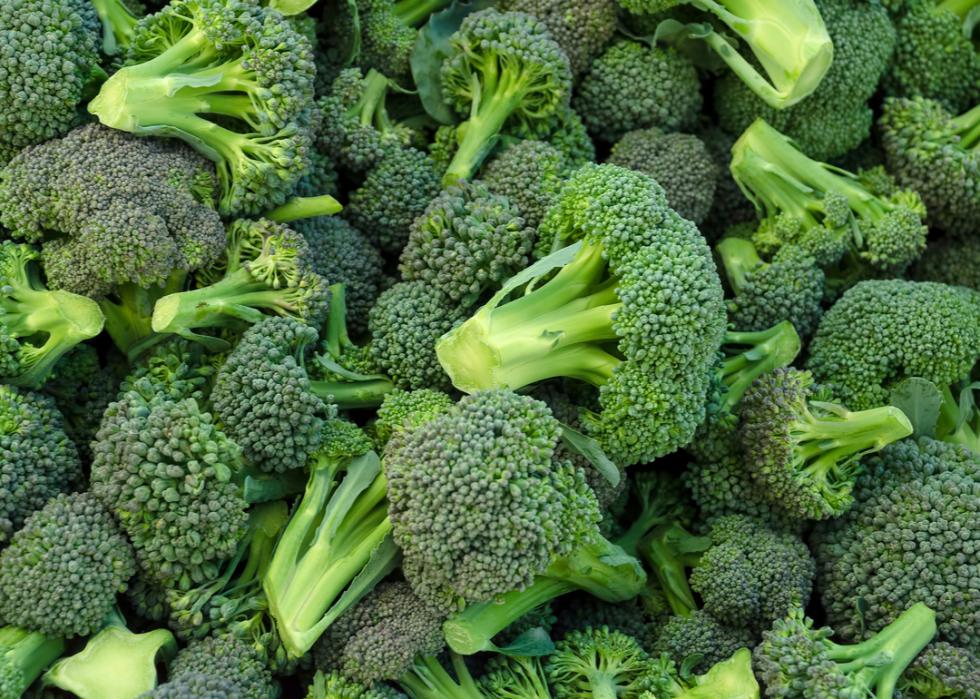
Broccoli
Broccoli is a famously healthy vegetable. The National Cancer Institute has reported on studies conducted to determine if broccoli may help prevent cancer. Broccoli belongs to the cruciferous vegetable family, which release indoles and other biologically active compounds when they are broken down in the body. Some research has shown that these can inhibit the development of cancer in certain organs. Broccoli is particularly delicious grilled with olive oil and topped with garlic.
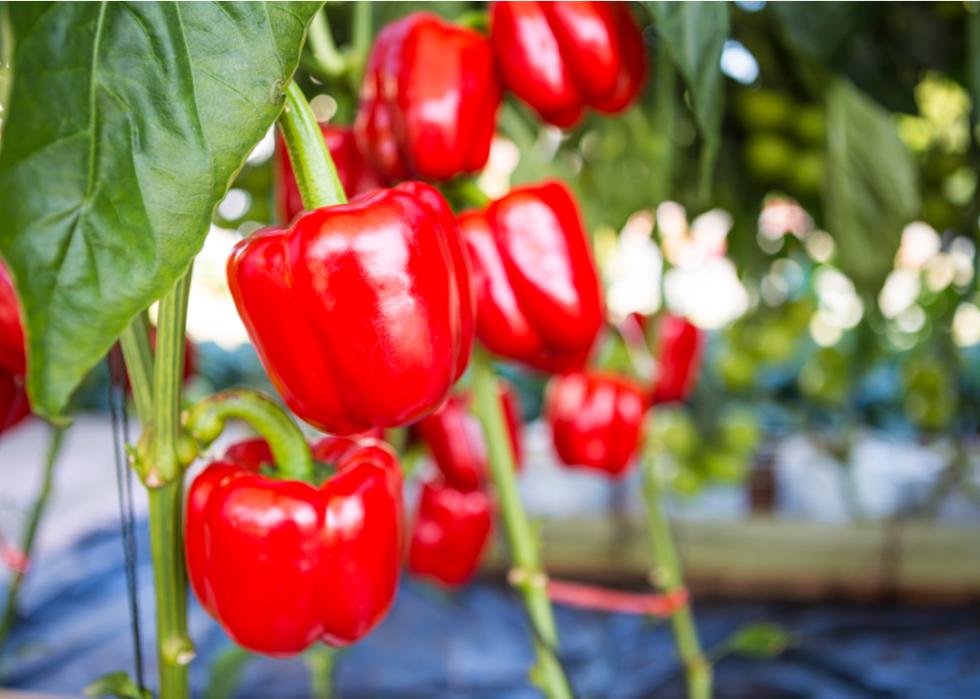
Red peppers
Red peppers are full of antioxidants and bioactive chemicals. These include vitamin C, beta carotene, and flavonoids. Beta carotene is a powerhouse nutrient. It can help improve eyesight, and promote immune system health. There are plenty of ways to work red peppers into your diet. They are excellent grilled on everything from tacos to salads, and work particularly well in the summer months sliced up with guacamole.
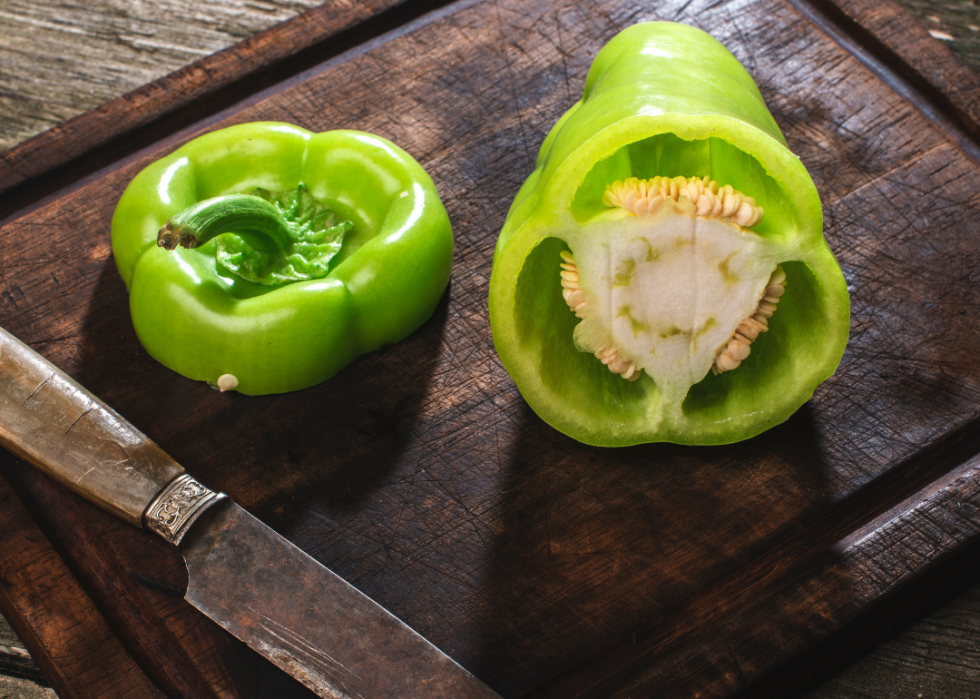
Green peppers
Green peppers have a duo of ingredients that work particularly well together. Namely, iron and vitamin C. Iron helps with everything from energy levels to preventing anemia. Vitamin C, in addition to its other health benefits, acts as a carrier for iron—which means it helps the body derive more benefits from it. Slice up your green peppers and enjoy them roasted in a salad, or just eat raw with hummus or another dip.
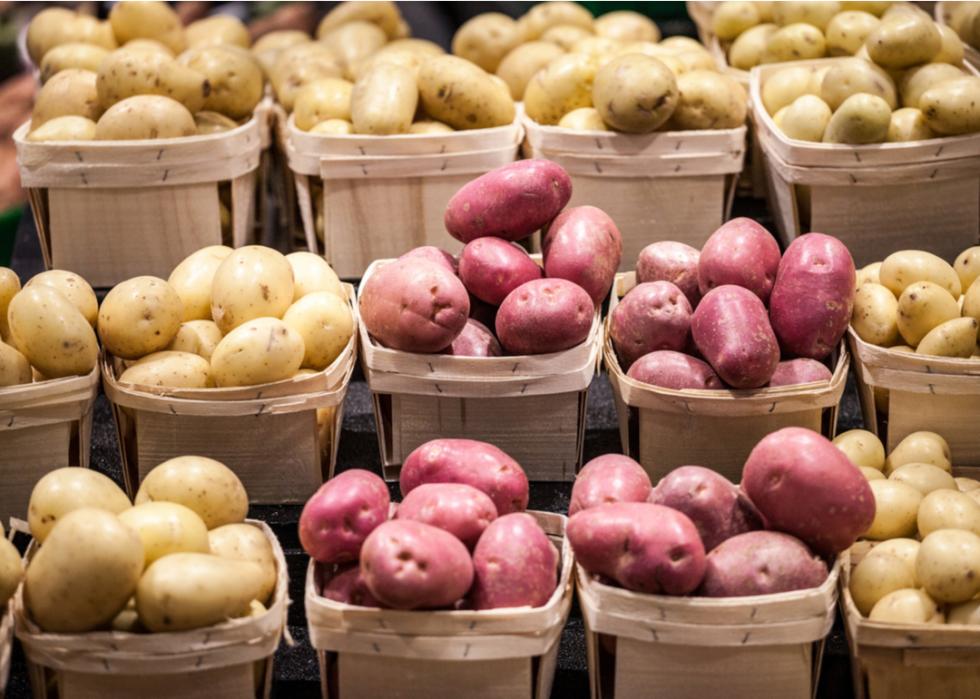
Potatoes
Potatoes can help with blood sugar control. This is because potatoes contain a resistant starch that helps lower insulin resistance, which in turn helps blood sugar control. The key thing with potatoes is not to let the preparation method take away the health benefits. French fries may not be the best way to get your potato nutrients—instead, simply cube them and cover them in olive oil before baking in the oven.
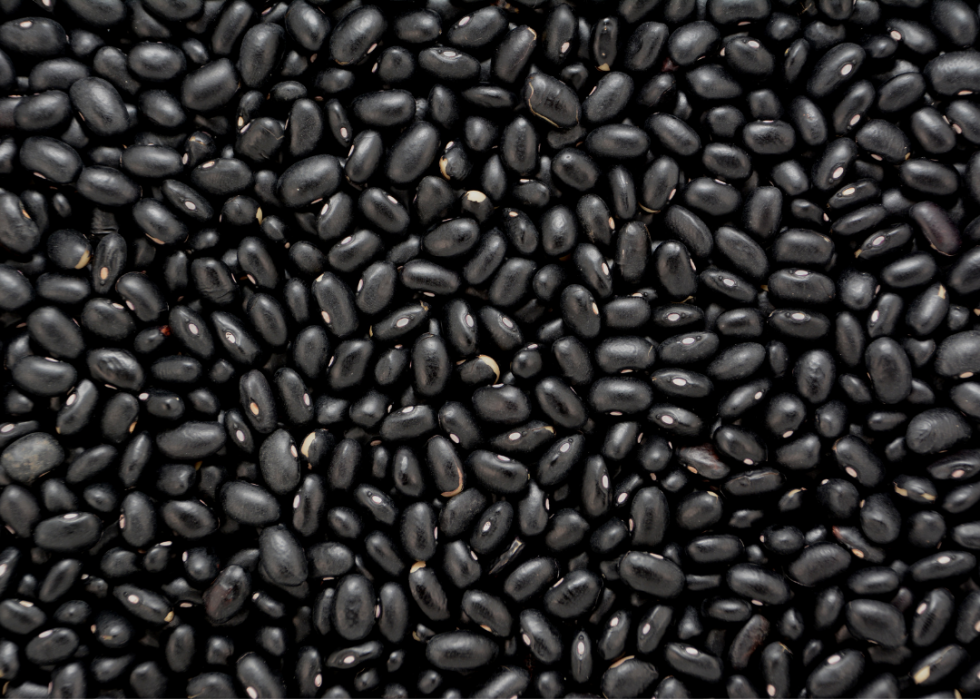
Black beans
Officially classified as legumes, black beans are an excellent source of plant-based proteins. This may be particularly useful for vegans and vegetarians who do consume protein from animal-based sources. Black beans and rice is a particularly good meal option for consuming black beans—both on a taste level and for consuming amino acids. Amino acids are essential for numerous systems in the body to function properly, among these glucose and lipid synthesis. Black beans go particularly well with Mexican food, in everything from taco salads to burritos.
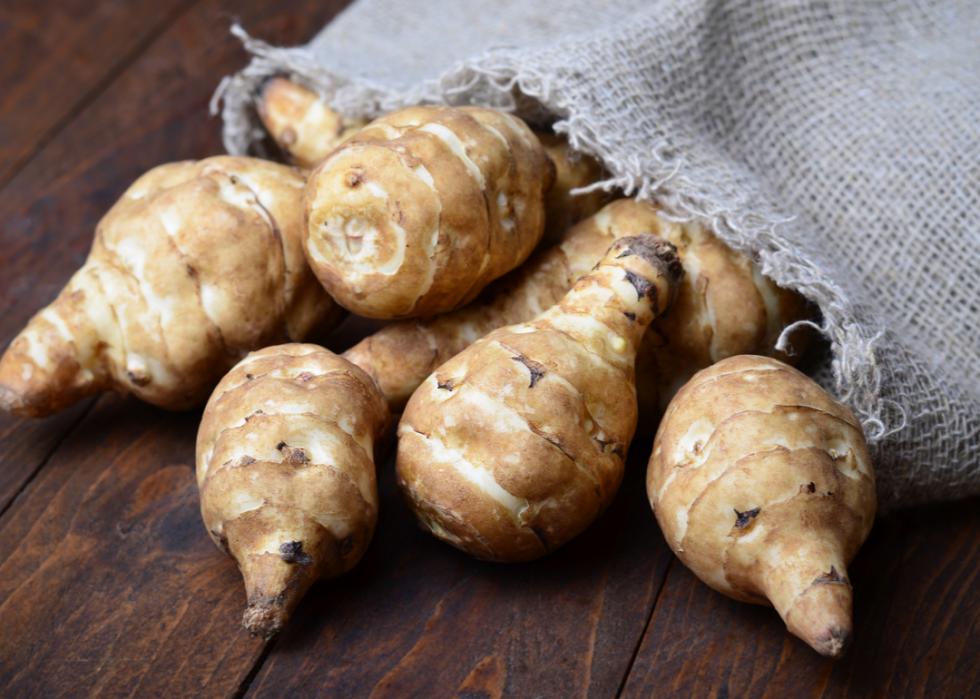
Sunchokes
Sunchokes are excellent sources of magnesium. One of the primary health benefits of magnesium can be to improve sleep quality. Studies have shown that magnesium can improve a range of different sleep quality metrics, including time taken to fall asleep and ability to stay asleep for longer. Sunchokes can be cooked or eaten raw, and are an excellent starch base for grain bowls.
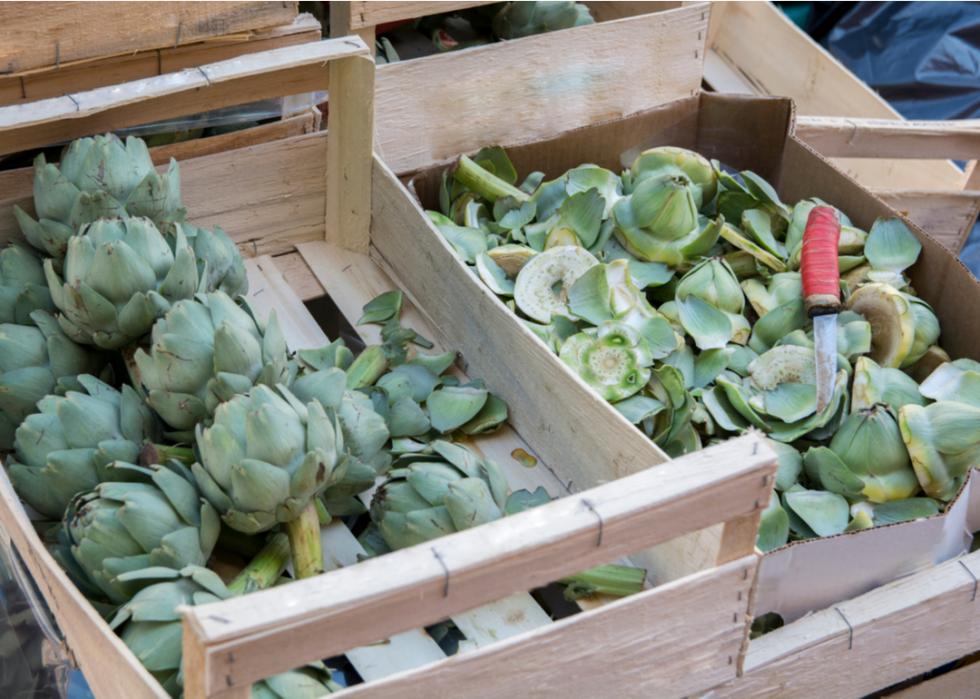
Artichokes
Artichokes are high in calcium. For those who prefer not to get their calcium from traditional sources like milk, artichokes can be a flavorful way to get the mineral. While calcium is important for health in a number of ways, it is essential for bone health. Studies have shown that calcium increases bone density. The base of the artichoke leaves and the heart of the artichoke are edible once cooked, and there are various ways to prepare them and serve them in order to enjoy their benefits.
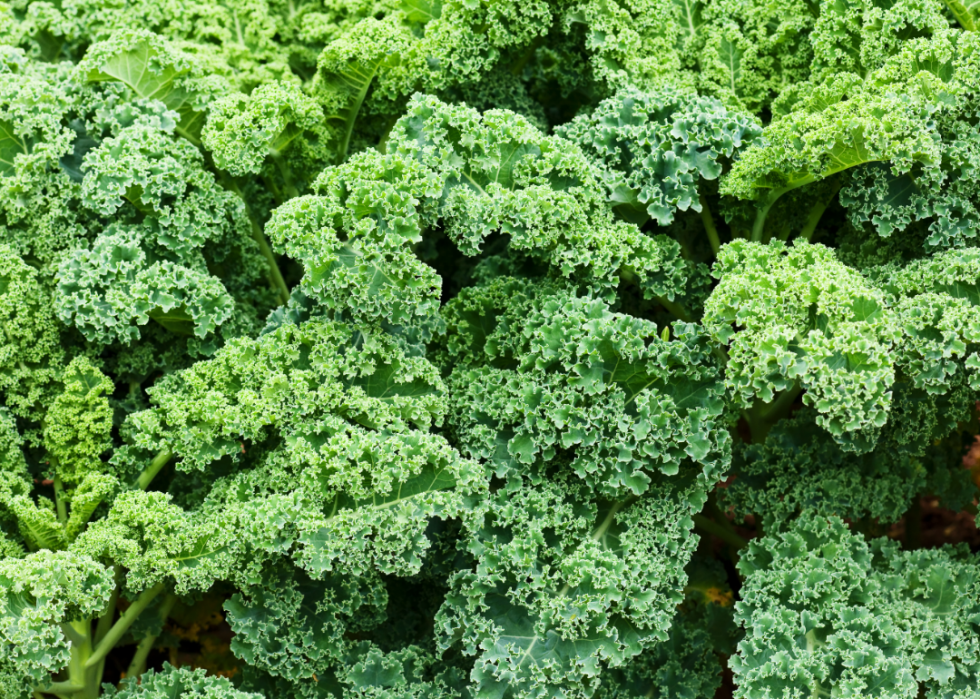
Kale
Kale is an incredibly nutrient dense food. It is packed full of vitamins, as well as fiber, folate, and manganese. Although cooking it simply is always an option, there are other ways to keep kale with you as an option for snacking. One of the tastiest is by making kale chips. Simply bake kale leaves that have been washed, dried, and coated with olive oil and seasonings of your choice, for 15 minutes.
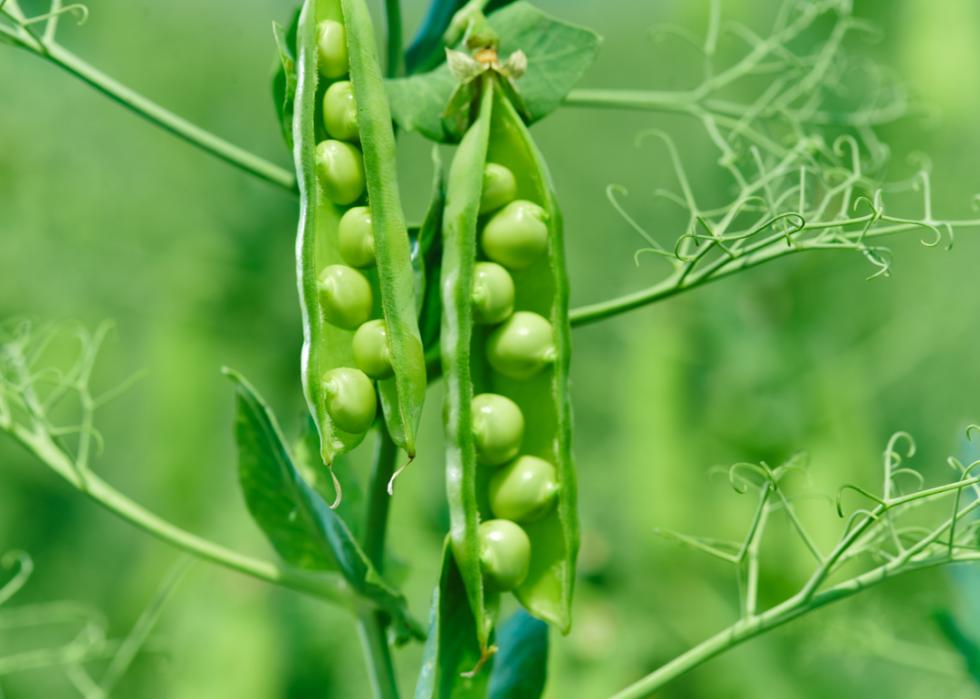
Peas
One of the many health benefits of peas is that they are high in fiber. Fiber is important for health for a number of reasons. It helps promote regularity, and may be especially good for those with digestive issues. Fiber also helps promote good bacteria in the gut. One of the most creative and delicious ways to work peas into your diet is by making spring pea guacamole.
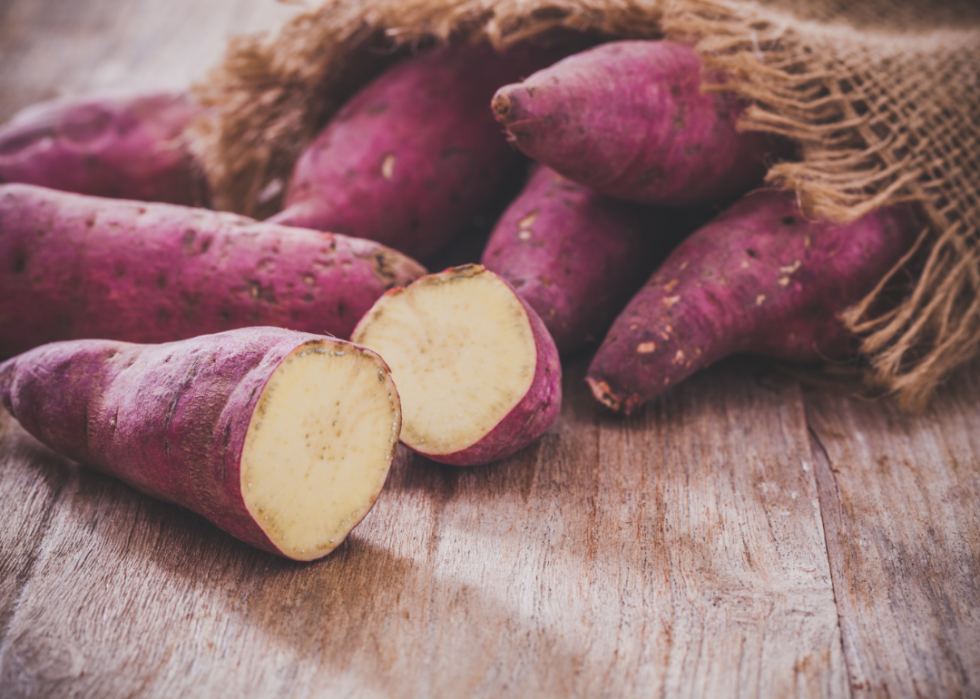
Sweet potatoes
Sweet potatoes may be a particularly good option for those with diabetes or hypoglycemia. They are low on the glycemic index, which means that they can help regulate blood sugar. However, the method of cooking matters. One study found that baked sweet potatoes had almost double the glycemic index of raw sweet potato. So if you’re watching blood sugar, consider at least steaming instead of baking, which comes in much lower on the glycemic index.
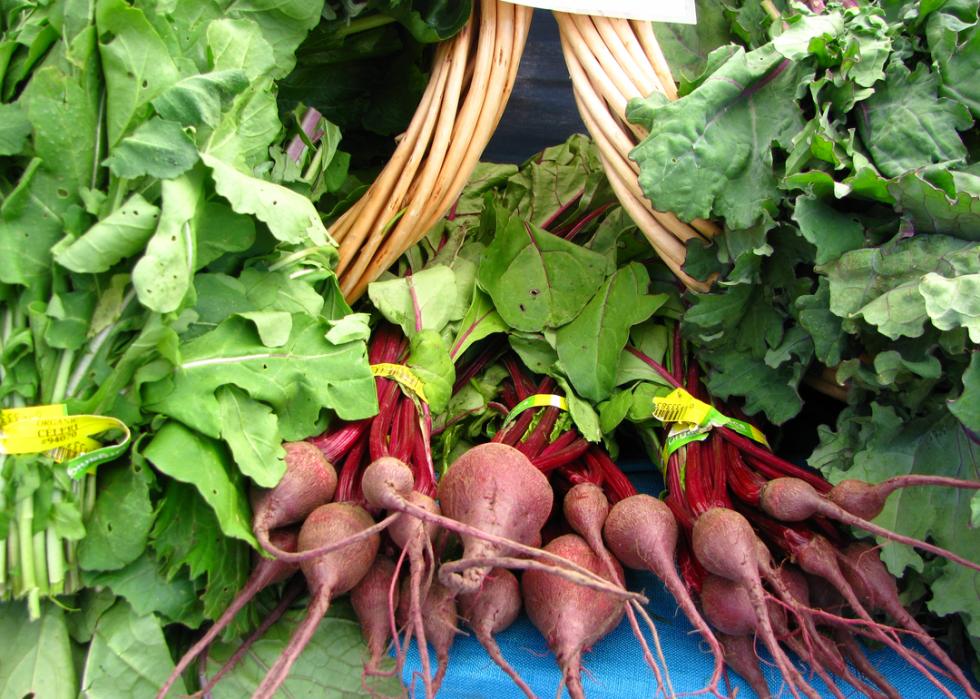
Beets
Those looking to lower their blood pressure may wish to up their beet intake. One study found that drinking 500mg of beet juice significantly lowered blood pressure in otherwise healthy people. This is due to a compound in beets called nitrates. Beets are also supremely versatile. They can be cubed and thrown in salads, pickled, or even turned into the base for a tzatziki.
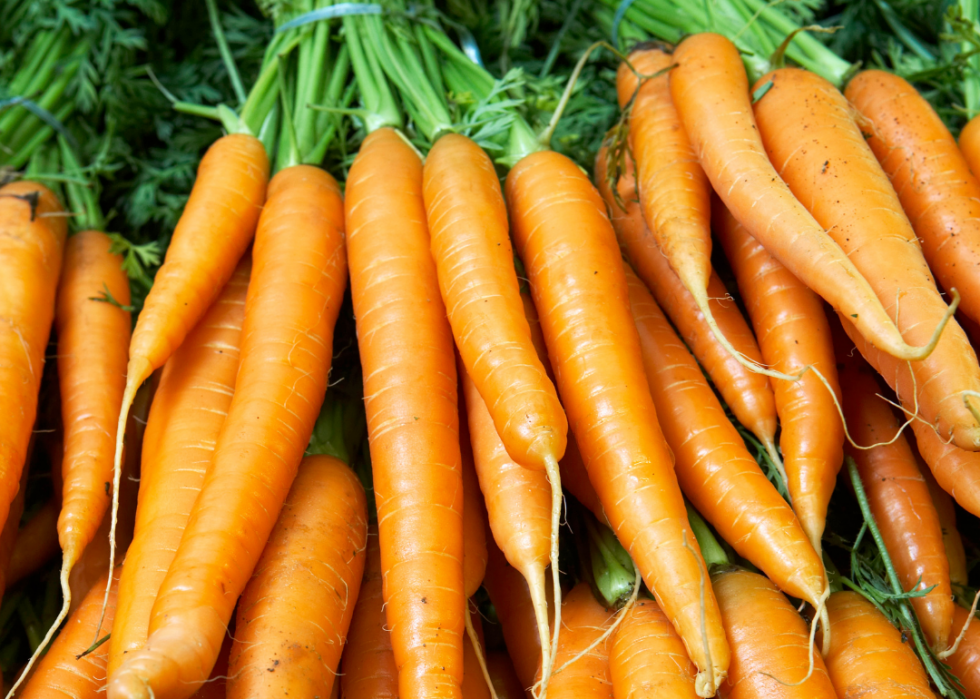
Carrots
A cup of carrots contains at least four times the recommended daily dosage of vitamin A. Vitamin A is important for healthy eyesight, and eating enough of it may help prevent vision loss. Studies have even found improved eyesight with carrot consumption. If you don’t love the taste of raw carrots, try mixing things up. Carrots are excellent with hummus, and they can also be dropped into stews and salads.
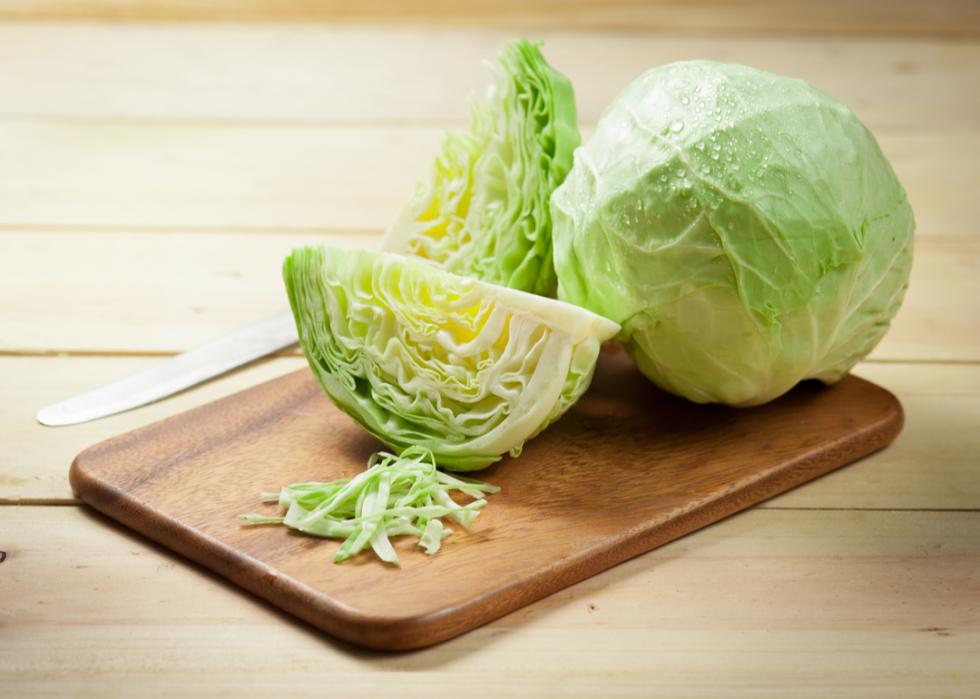
Cabbage
Cabbage has a reputation for being bland, but it doesn’t have to be. Cabbage that’s been pickled into sauerkraut can act as a probiotic. Probiotics are essential for gut health, which is an important secondary benefit. The better shape your gut is in, the better it can absorb all the vitamins and minerals of every food you eat. Sauerkraut is delicious in salads, and also in soups.
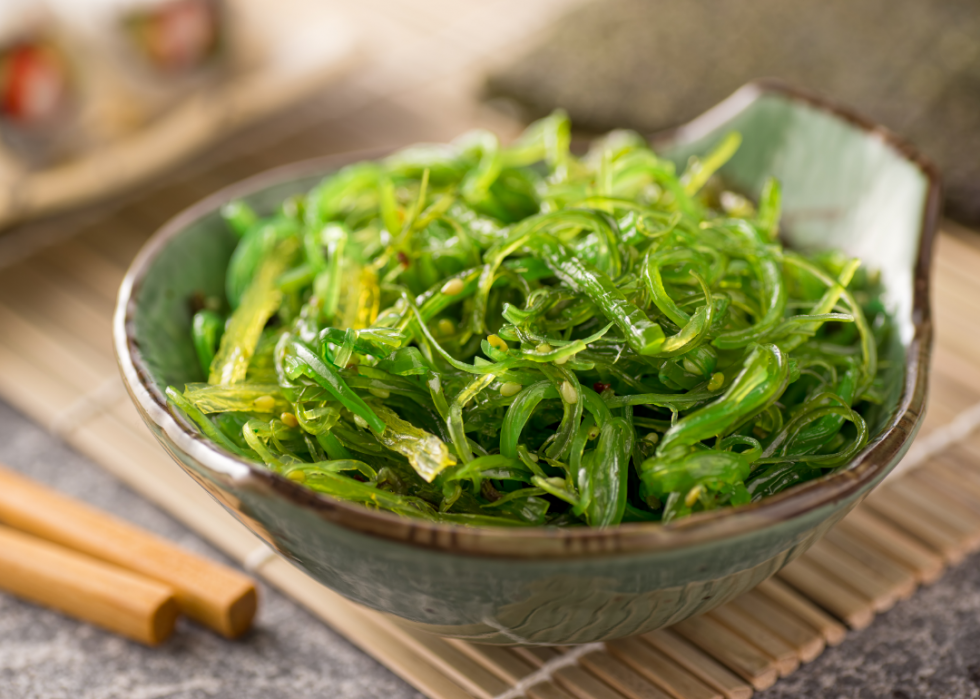
Seaweed
Vegetarians and vegans, in particular, might want to load up on seaweed. The aquatic vegetable is one of the only sources of omega-3 found outside of animal products. It is also rich in iodine, which is important for thyroid function. Some people enjoy eating seaweed crackers, which can deliver these benefits. But if that’s not your speed, consider crunching them up to toss into a salad.
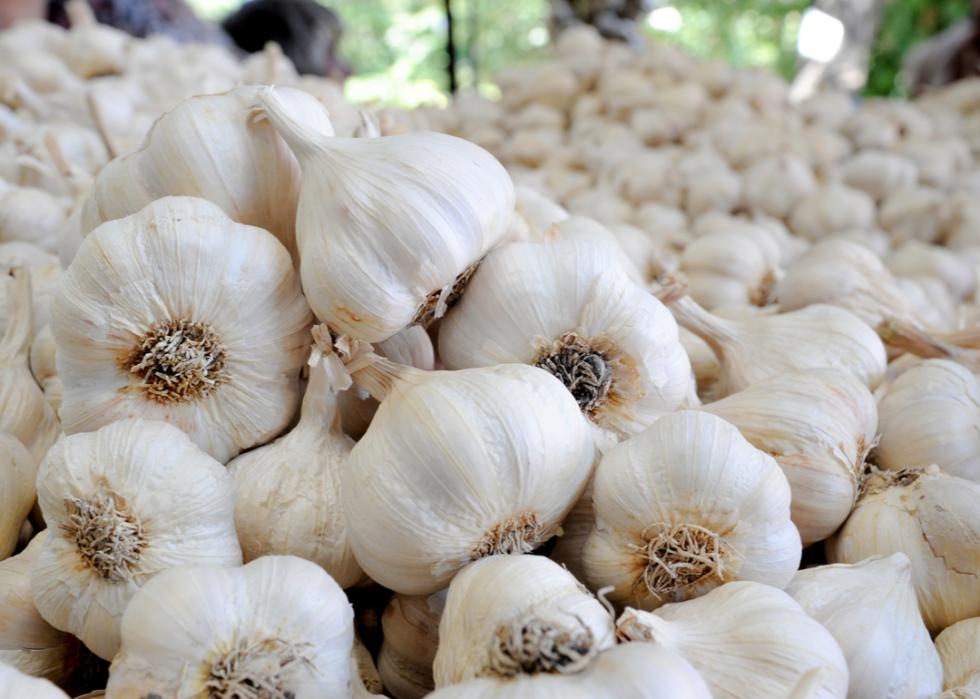
Garlic
Garlic is one of the oldest medicinal vegetables in the world. It has been used as a natural antibiotic since at least the 16th century. While eating raw cloves straight from the head might not be an appealing option, there are plenty of ways to enjoy garlic’s health benefits. Chop and mix it into dips or spreads like tahini, for example, to drizzle other vegetables with, or scatter it on top of bruschetta.
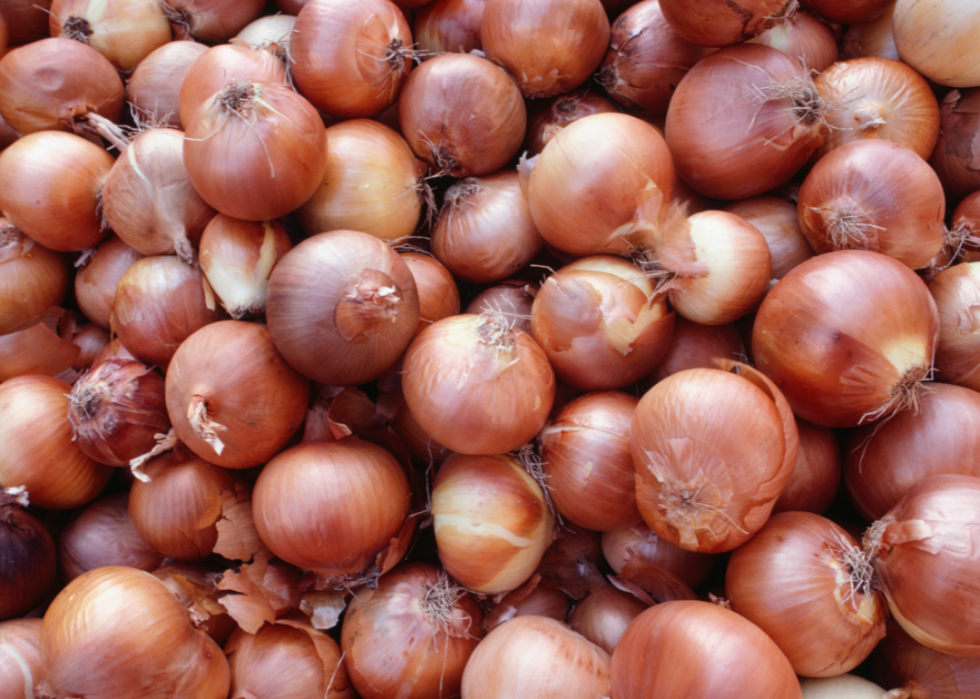
Onions
While biting into an onion might not be the most appealing way you can think of to get vegetable servings in, onions have important health benefits. Multiple studies have found that the sulfur compounds found in onions may help protect against cancer. Onions are also rich in B vitamins, and relatively low in calories. Looking to add them to your diet without tearing up? Try grilling them to put on veggie kebabs.
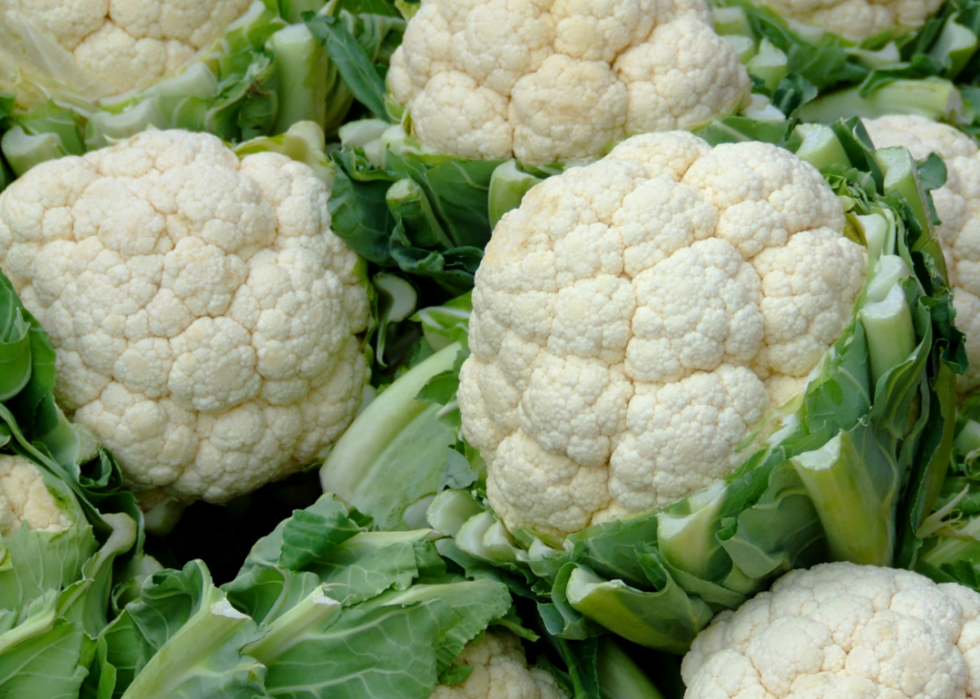
Cauliflower
Cauliflower is a tremendously versatile vegetable that can be pickled, roasted, or even shredded to use as a substitute for rice. Cauliflower may benefit both mental and physical health. It is rich in choline, which is a necessary nutrient to maintain optimum levels of both mood and memory. It is also high in sulforaphane, which has been shown to help reduce the risk of cancer. Pickle your cauliflower to throw in a summer salad, or roast a whole head with garlic for a cozy winter meal.
This story originally appeared on Thistle and was produced and distributed in partnership with Stacker Studio.



